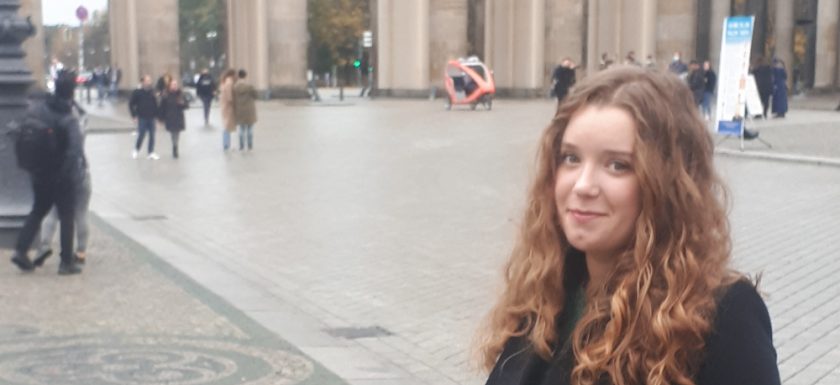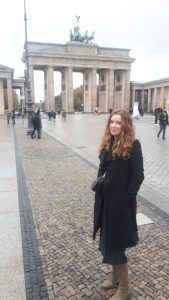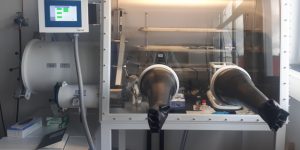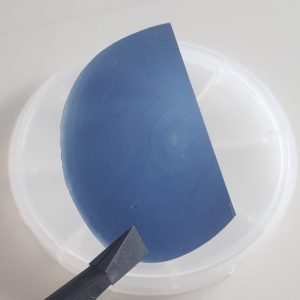
Natalia Gostkowska-Lekner has finished her Master in Nanotechnology in 2018 at Gdansk University of Technology, at the seaside of Poland. She then moved to Berlin for a PhD position. In her free time she enjoys roller skating on the Tempelhofer Feld and playing board games.
Why did you choose to come to Berlin to do your PhD?

I was looking for an opportunity to do a PhD abroad in my field of interest, and I discovered this position in Nature Careers. After applying for it, I was invited for the interview and I got the position starting from November 2018. Berlin combines working abroad experience and being close to home, that is perfect solution for me.
How did you get started in Berlin?
My first day at HZB was also my first day ever in Berlin. It was really difficult to find an apartment. We managed by interim solutions, until we found a nice place to stay. On the other hand, bureaucracy was much less of a problem, since I am a citizen of the European Union, which makes it easy to move and work in another EU country.
What is your field of research?

The climate crisis is for me equally a concern and a motivation. I believe that renewable energies and energy materials will be part of the solution. During my master thesis I studied thermoelectrics, materials which can recover waste heat and transform it into electric energy. In my PhD project, I combine inorganic and organic thermoelectric materials. Taking part in research to support the environment, that appeals to me.
What exactly are you doing?

I synthesize nano porous silicon membranes by electrochemical etching of crystalline silicon and fill it with conducting polymer. I characterize the thermal and electrical transport properties of the resulting hybrids as well as its structure information. My goal is to combine two materials that would result in synergistic effects and even enhance the performance over individual components.
Did you have to stop experiments during the lockdowns?
During the first lockdown, we had to interrupt lab work and I did focus on reading and analysing data I already had. I took the opportunity to look back as well as into the future and also to get some writing done. Of course, there was also some stress and worry for the family and I was not able to visit them for months. After returning on site, I am working special shifts in the lab with hygiene measures. I have to produce the samples whose synthesis may take days.
What is the most difficult aspect of doing a PhD?
I knew beforehand that doing a PhD is stressful at times. However, I enjoy lab work and I already experienced it during my bachelor and master theses. I even published during that time. Therefore I had a clear idea of what is expected. My main objectives were: diving deeper into the subject and working abroad. I like the flexibility and independence. So even working in a specific DFG project, I can develop my ideas. I guess, you would not have this freedom in industry..
What are you looking forward to after the pandemic?
I miss conferences. I really underestimated how much inspirations and networking are related to them. I am also looking forward to travel again and to participate in international conferences and beamtimes in person.
Thank you for this interview, Natalia.
Did you like this interview? You may enjoy also reading other interviews in the series #phdlife: science.hzbblog.de/tag/phdlife
